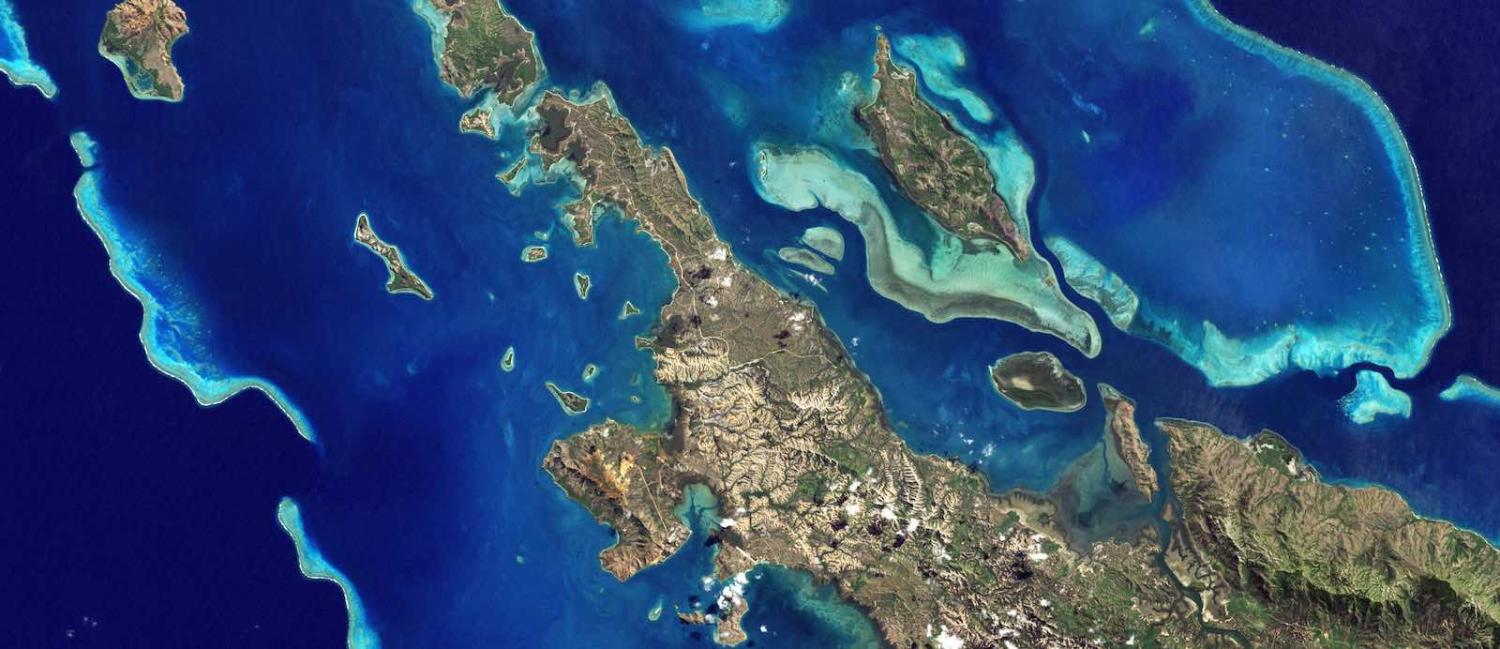The outcome of 12 May provincial elections, the last under peace agreements, hardens the atmosphere for essential political discussion about New Caledonia’s future beyond those agreements. While independence groups increased their representation in the territory’s Congress by one seat, hardline pro-France parties overtook moderate loyalists, within a reduced loyalist majority. A new non-Kanak islander party may play a determinant role.
The turnout for these elections was 66.46%, slightly lower than those in 2014 (69%), but substantially lower than the 81% for the November 2018 independence referendum.
Loyalist parties were seriously divided, and it showed. Their overall representation in the 54-member Congress dropped by one from 29 to 28 seats, and this only by including the new Wallisian-based party L’Eveil Océanien (LEO, Pacific Wakening) which won three seats and professed itself French. The loyalist coalition Avenir en Confiance (AEC, Future with Confidence), led by Sonia Backès’ 18-month-old hardlineLes Republicains Calédoniens (Republican Caledonians), won 18 seats in the Congress, displacing the formerly dominant, more moderate Calédonie Ensemble (CE Caledonia Together) who won seven seats (as opposed to its 15 previously).
CE leader Philippe Gomès put his party’s losses down to fear, prompted by the relatively strong showing of independence support in the 2018 referendum, which he said had radicalised the loyalist vote. Both AEC and CE were quick to say they would work together.
The election outcome, with its sharp division between hardline loyalists and independence groups, complicates the critical self-determination path ahead.
But the change presents challenges. In contrast to the more moderate CE which had favoured dialogue with independence groups about a formula for future governance, the AEC, while not ruling out dialogue, has said any discussion must be “firm” and without “unilateral concessions”, and, in apparent challenge to the Noumea Accord’s special recognition of indigenous Kanaks, with “no one community” having an advantage. It favours doing away with Accord provisions allowing only longstanding residents to vote – e.g. for the two further independence votes possible under the Accord by 2022, anathema to Kanak pro-independence groups. It advocates changing Accord-allocated proportions of fiscal and electoral distribution between the two Kanak Northern and Islands provinces and the mainly European Southern Province.
Independence leaders, while noting the relatively low turnout, said that young Kanaks did not participate in provincial elections, favouring voting in the independence referendums, and expressed satisfaction with their solid ongoing support and increased representation in the Congress by one to 26 seats. Long-time coalition leaders Paul Néaoutyine (Palika), Daniel Goa (Union Calédonienne) and Rock Wamytan (Front de Libération Nationale Kanak et Socialiste, FLNKS) retained their support.
Wamytan observed on television that the FLNKS coalition remained the pro-independence voice, while since 1999 there had been four successive loyalist groupings of which the AEC was but the latest iteration. As the AEC win became clear, UC leaders noted that the AEC did not recognise Kanak claims and suggested that UC supporters would become more “pugnacious and combative”.
The emergence of the new Wallisian-based party underlines the importance of the non-Kanak islander vote in the years to come. Its leader, Milakulo Tukumuli, professes the party’s membership is “French”, and therefore loyalist, but FLNKS leader Rock Wamytan noted it included former Wallisian independence supporters. This raises questions about the role the new party might play given the need for loyalist and independence parties alike to seek alliances.
The vote was held peacefully, although another arson attack occurred at a troubled mining site in the Kanak heartland just days before the vote. The Pacific Islands Forum sent an observer mission, the first time the Forum has monitored any of the territory’s provincial elections.
The election outcome, with its sharp division between hardline loyalists and independence groups, complicates the critical self-determination path ahead. The Noumea Accord provides for up to two more independence referendums by 2022, and for discussion about future governance after the Accord expires.
Next steps include the convening of the Congress on Friday, and its election of an executive Government reflecting proportionate party strength, which in turn elects a President and Vice-President. These processes have been fraught in the past and can take months.
Six months after its election, from November 2019, Congress can seek a second independence referendum, with one-third support (18 seats). Independence groups are committed to this referendum, which can be held any time by November 2020, the later the better for them. The AEC had pledged to bring on a second referendum quickly if it won 18 seats. It fell short, but could move for an early referendum with the support of the LEO.
Nothwithstanding these divisions, getting all parties to meet and discuss the many and sensitive core issues for governance beyond the Noumea Accord is becoming urgent. The mandate of this last Congress under the Noumea Accord runs out in May 2024.

